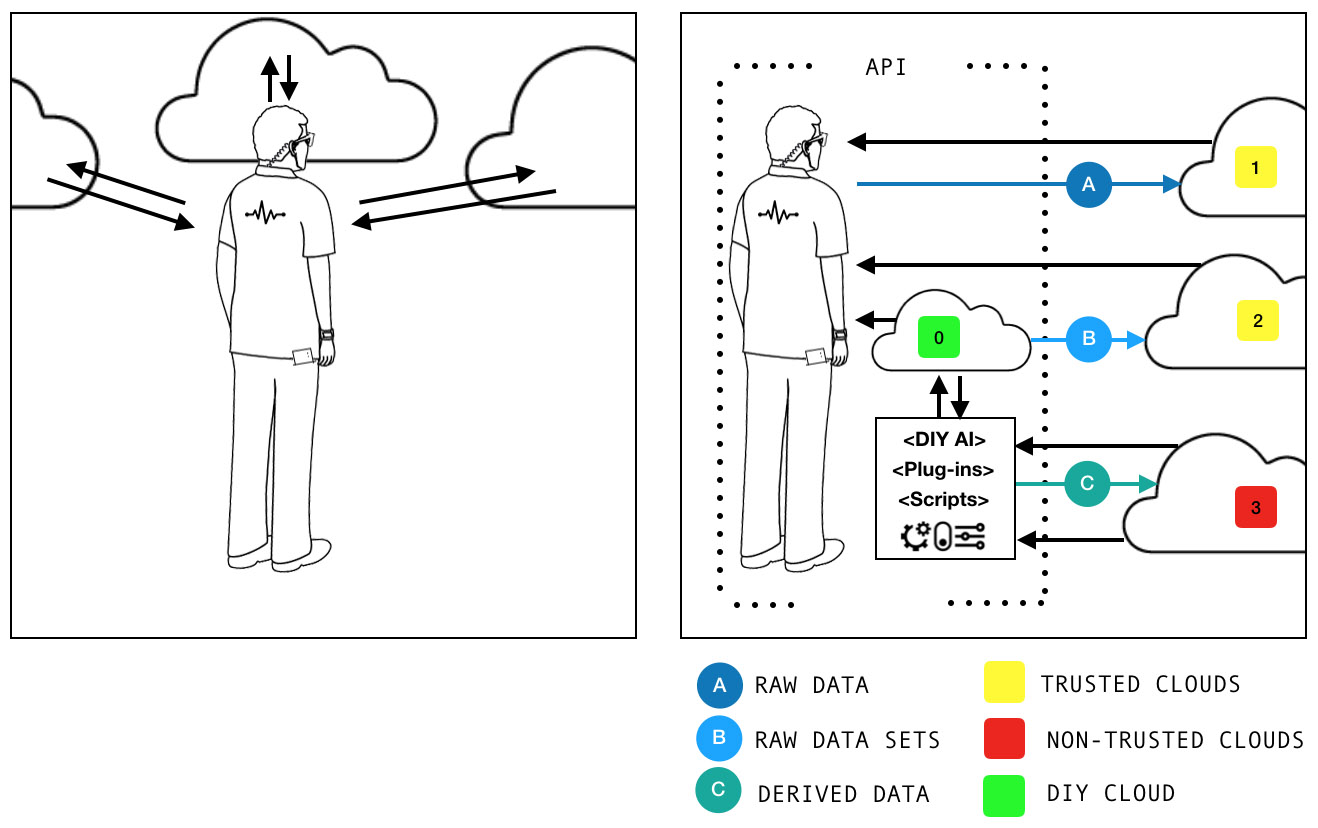Augmented reality artist Sander Veenhof and Leonieke Verhoog, program manager PublicSpaces took their session attendees on a trip to the future. They did this ‘wearing’ the interactive facefilters they created for their speculative fiction and research project the “Futurotheque”. The AR effects transformed them into citizens in the years 2021 till 2030, wearing the technical equipment we can expect to be wearing during those years. But besides the hardware, the filters foremostly intended to visualise the way we’ll experience the world in the near future. Which is through the HUD (Heads Up Display) of our augmented reality wearables.
We tend to think of the future of AR as more of the same, but then in a hands-free way, but this session aimed to look beyond the well known use-cases for these devices. Of course they will provide us with all our information and entertainment needs and they can guide us wherever we are. But will that be our navigation through the physical world, or will these devices try to guide us through life? In what way will cloud intelligence enhance us, making use of the build-in camera that monitors our activites 24/7? What agency do we want keep? And in what way should citizens be supported with handling these new devices, and the new dilemmas arising from their use?
These are abstract issues, but the facefilter visualisations applied on Sander and Leonieke helped to visualise the day-to-day impact of these technical developments on us indivisuals, and have an interesting discussion with the session participants. After a dazzling peek into the next decade, the conclusion was that there’s a lot to think about when these devices are going to be part of our society. But fortunately, that’s not the case yet. We still have time to think of way to integrate this devices in our society beforehand, instead of doing that afterwards.
28 sept 18-19h | NGI program website
The NGI Policy Summit was organised by Nesta and the City of Amsterdam, in collaboration with the European Commission. It forms part of the Next Generation Internet (NGI) programme, the Commission’s flagship initiative to build a more democratic inclusive and resilient future internet.
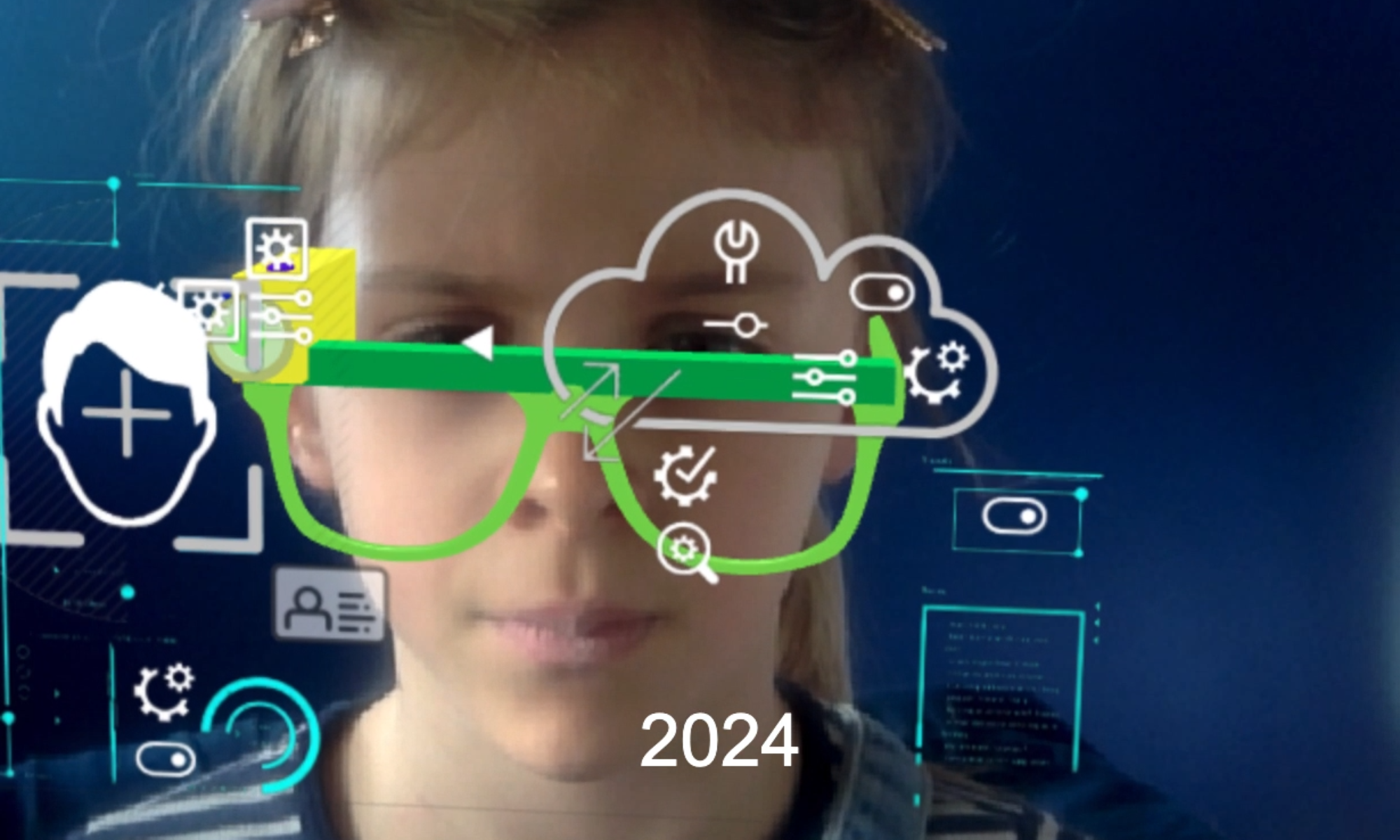
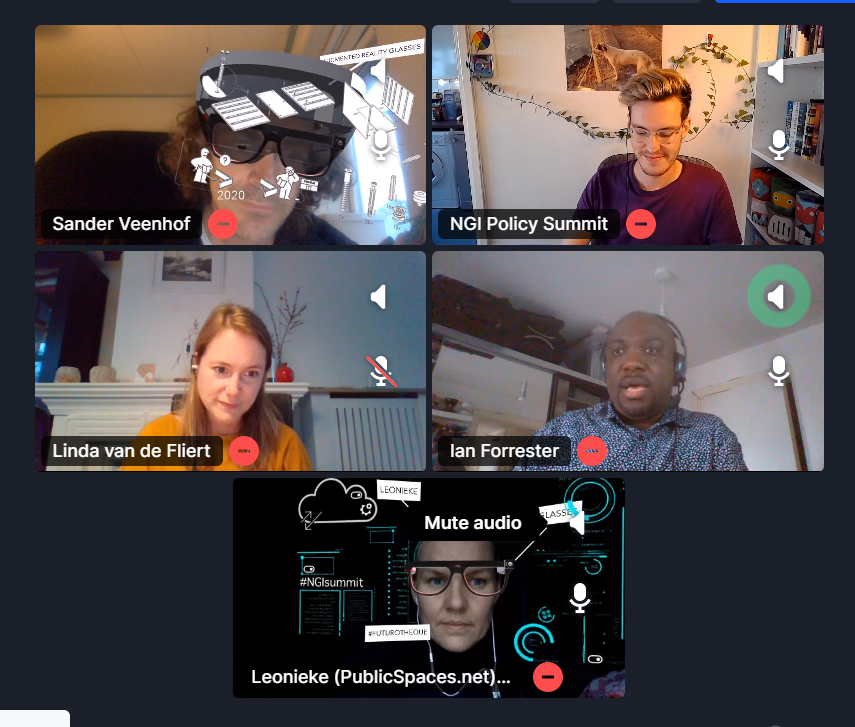
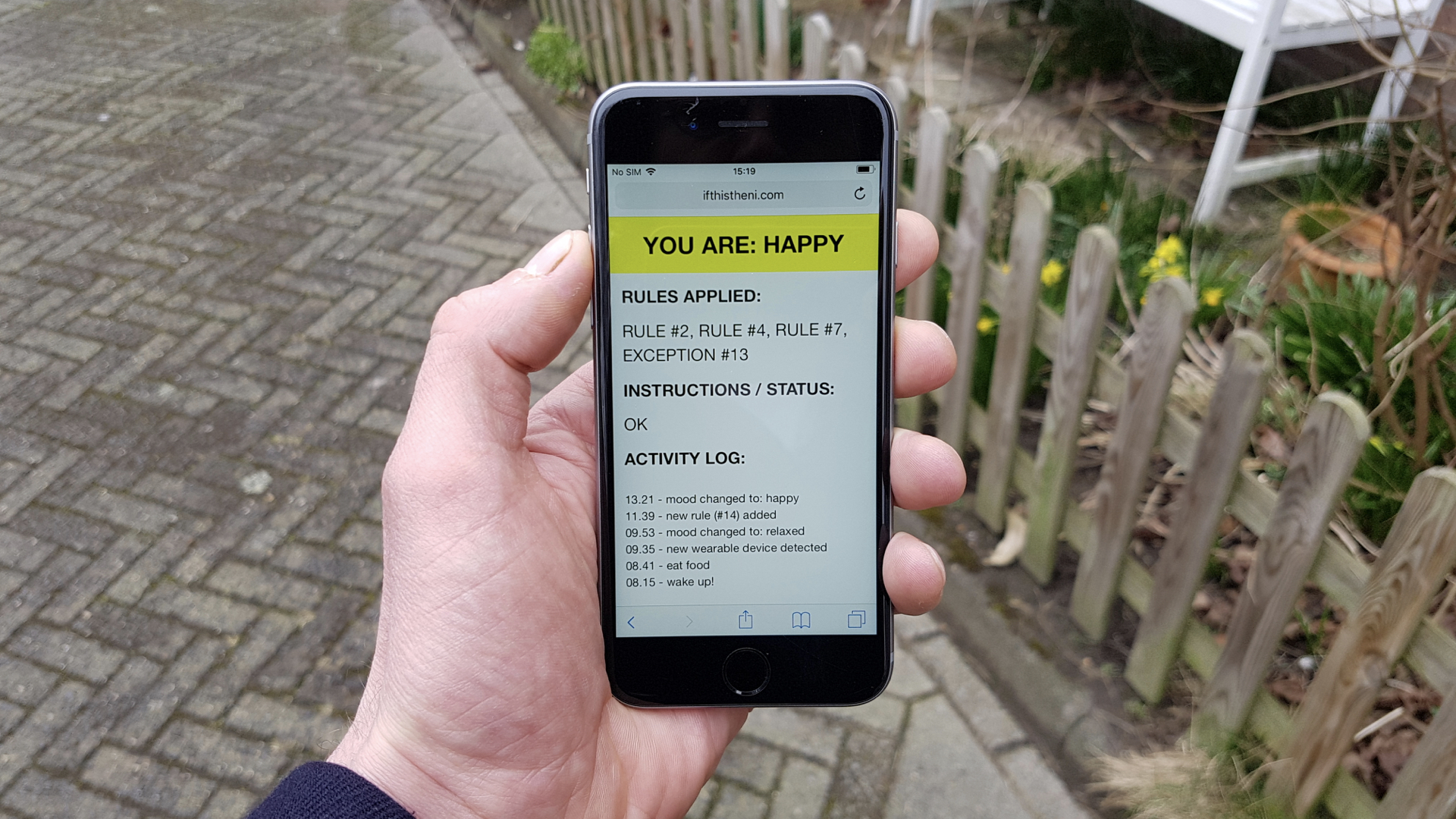
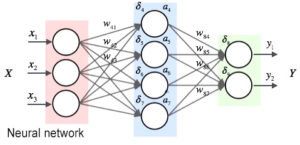 Om die keuzevrijheid te verkrijgen is hoe dan ook een radicale verandering nodig in de manier waarop apps en mensen zich tot elkaar verhouden. Het zal niet eenvoudig zijn om de tech-bedrijven aan zo’n transitie mee te laten werken. Daar zal regelgeving voor nodig zijn. En het zal ook niet eenvoudig zijn voor individuen om deze nieuwe mogelijkheden in de praktijk te brengen. Het leven zal nog meer dan nu een ICT project worden. Mag je de straat op zonder dat je de laatste updates hebt geïnstalleerd? En met ongecertificeerde of ‘freemium’ scripts? Misschien is daar ook nieuwe regelgeving voor nodig. De self-driving car is nog niet toegestaan op de Nederlandse weg. Maar hoe zit het met een mens die functioneert op basis van ambachtelijke do-it-yourself AI?
Om die keuzevrijheid te verkrijgen is hoe dan ook een radicale verandering nodig in de manier waarop apps en mensen zich tot elkaar verhouden. Het zal niet eenvoudig zijn om de tech-bedrijven aan zo’n transitie mee te laten werken. Daar zal regelgeving voor nodig zijn. En het zal ook niet eenvoudig zijn voor individuen om deze nieuwe mogelijkheden in de praktijk te brengen. Het leven zal nog meer dan nu een ICT project worden. Mag je de straat op zonder dat je de laatste updates hebt geïnstalleerd? En met ongecertificeerde of ‘freemium’ scripts? Misschien is daar ook nieuwe regelgeving voor nodig. De self-driving car is nog niet toegestaan op de Nederlandse weg. Maar hoe zit het met een mens die functioneert op basis van ambachtelijke do-it-yourself AI?